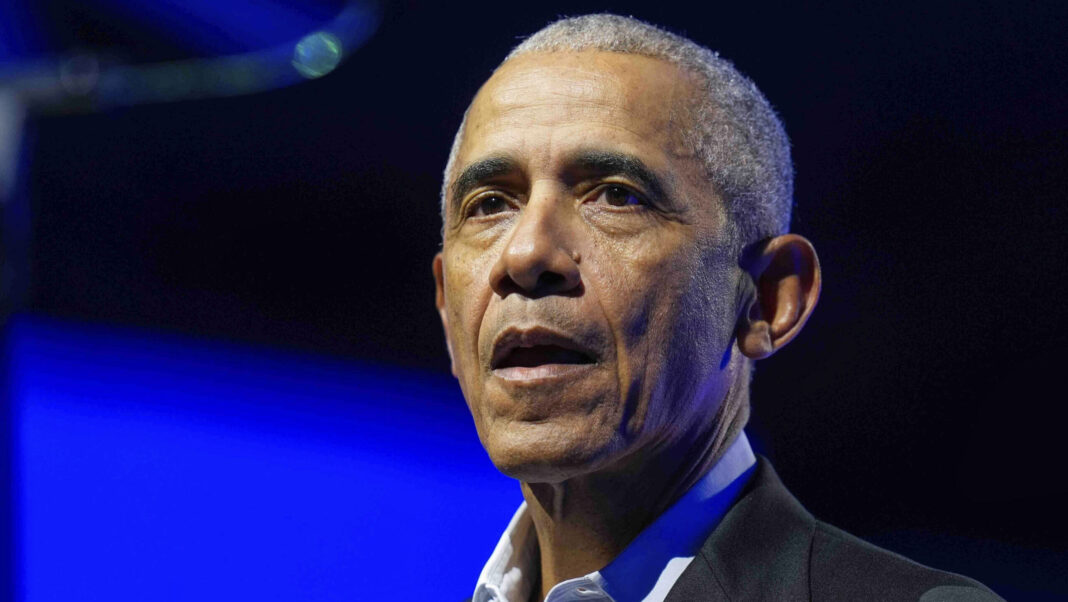Obama’s Call for Peace Amidst Ongoing Strife
Former President Barack Obama has recently spoken out following the White House’s announcement of a potential agreement between Israel and Hamas, aimed at bringing an end to the devastating conflict in Gaza. Since the eruption of hostilities on October 7, 2023, more than 67,000 Palestinians have tragically lost their lives, marking this conflict as one of the deadliest in recent history.
In a heartfelt statement released on Wednesday, Obama expressed a mix of cautious optimism and deep concern for both the Israeli and Palestinian families affected by this relentless violence. “After two years of unimaginable loss and suffering, we should all be encouraged and relieved that an end to the conflict is within sight; that those hostages still being held will be reunited with their families; and that vital aid can start reaching those inside Gaza whose lives have been shattered,” he stated. This statement underlines the urgency of humanitarian responses and the hope for a more peaceful future in the region.
Trump’s Attempt to Claim Credit for Peace Talks
Meanwhile, former President Donald Trump has been vocal about his desire to take credit for the peace resolution currently unfolding. He recently joined Israeli Prime Minister Benjamin Netanyahu at the White House, where they unveiled a 20-step plan aimed at ending the conflict and beginning the process of reconstructing Gaza. Trump’s involvement in the negotiations has stirred a mix of skepticism and intrigue, particularly given the complexities surrounding the conflict.
Despite the optimistic rhetoric from both sides, challenges remain. The Israeli government is set to vote on the proposed agreement, and issues such as the disarmament of Hamas and the future governance of Gaza are still contentious points that need to be addressed. The complexities inherent in these negotiations highlight the layered nature of the conflict and the difficulty in achieving lasting peace.
The Global Reaction to the Conflict
The ongoing crisis in Gaza has not just been a regional concern; it has sparked a global call for action. Advocacy groups and citizens worldwide have mobilized against what they describe as genocide and a humanitarian catastrophe. A United Nations commission and various human rights organizations have been outspoken in their condemnation of Israel’s military operations, claiming that the scale of destruction and loss of life constitutes a moral crisis that demands immediate attention and intervention.
Political Implications of the Conflict
The human cost of the Israel-Hamas conflict has also reverberated through the political landscape in the United States. The issue became a significant topic during the 2024 election cycle, affecting the Democratic nominee Kamala Harris, who faced criticism for her position as vice president under the Biden administration, which supported Israel’s military actions. Post-election polling suggested that Harris’s association with the administration’s stance may have negatively influenced her electoral prospects. This reflects how intertwined global issues are with domestic politics, shaping narratives and influencing voter sentiment.
Rebuilding Gaza: A Collective Responsibility
In his statement, Obama emphasized not simply the cessation of violence but the arduous task that lies ahead in rebuilding Gaza. He stated, “More than that, though, it now falls on Israelis and Palestinians, with the support of the U.S. and the entire world community, to begin the hard task of rebuilding Gaza.” The notion of rebuilding transcends physical infrastructure; it calls for a commitment to acknowledging the shared humanity and fundamental rights of both peoples involved.
As global citizens observe this complex and evolving narrative, the hope remains that a genuine dialogue will emerge, leading to a more sustainable peace. The journey toward reconciliation requires not just political agreements but a profound change in how both communities perceive each other, making mutual respect and empathy essential components of a peaceful resolution.



